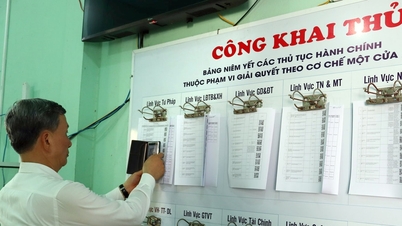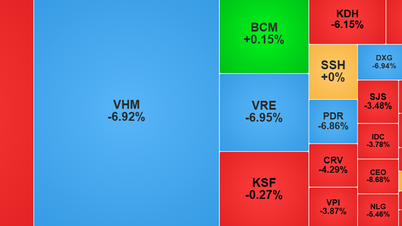* Credit institution ratings will be conducted annually, based on criteria such as capital safety, asset quality, governance capacity, business performance, and liquidity. The rating results will serve as the basis for the State Bank of Vietnam to consider granting licenses for network expansion, launching new products and services, and determining the level of risk in credit management. Therefore, commercial banks and branches of foreign banks, starting in November, need to review their governance and internal control systems to meet the new criteria.
* Also from November 1, 2025, the State Bank of Vietnam (SBV) will apply Circular 27/2025/TT-NHNN issued on September 15, 2025, on strengthening the management of anti-money laundering in the banking sector. Accordingly, credit institutions, payment intermediaries, e-wallets, and financial exchanges must conduct periodic money laundering risk assessments, classify customers according to risk levels, and report electronic money transfer transactions to the Anti-Money Laundering Department of the SBV. In addition, large-value transactions, suspicious transactions, or cross-border money transfers must also be reported. Transaction data must be stored for a minimum of 5 years and readily available upon request for inspection or investigation. This is a step aimed at increasing transparency of money flows within the banking system and improving the effectiveness of anti-money laundering efforts.

* Another policy that will take effect from November 15, 2025, is Circular 33/2025/TT-NHNN, amending and supplementing Circular 17/2014/TT-NHNN on the classification, packaging, and delivery of precious metals and gemstones. Accordingly, from mid-November, the State Bank of Vietnam and credit institutions are allowed to deliver and receive gold bars under purchase, sale, or processing contracts. The delivery and receipt of gold bars must be carried out according to the correct procedures, with legal documentation, clear sealing, and the recipient is responsible for the quality and quantity.
In addition, gold is classified into three groups: jewelry gold (8 karats or more), gold bars (with clear codes and specifications) and raw gold (in the form of bars, grains, and pieces). Regarding packaging, gold bars of the same quality are packaged in lots of 100 or multiples of 100 pieces (maximum 500 pieces), while raw gold is packaged in lots of 5 or multiples of 5 bars (maximum 25 bars). These gold lots are contained in stainless metal boxes, sealed and clearly labeled with verification information.
* From November 18, 2025, except for some provisions that take effect later (April 1, 2026), the State Bank will also implement Circular 30/2025/TT-NHNN issued on September 30, 2025, amending and supplementing a number of articles of Circular 15/2024/TT-NHNN on providing non-cash payment services.
According to the new regulations, Vietnamese citizens must present their citizen identification card or level 2 electronic identification when using non-cash payment services; foreigners residing in Vietnam must have a passport, equivalent documents or level 2 electronic identification. Payment service providers are responsible for handling complaints and denunciations of violations and must ensure that the online payment system is not interrupted for more than 4 hours per year. If the interruption exceeds 30 minutes or the maintenance is not announced in advance, the unit must report to the State Bank within 4 hours and send a detailed report within 3 working days.
The simultaneous implementation of many policies from November 2025 shows that the SBV is accelerating the completion of the legal framework to improve the quality of governance in the banking system, increase transparency and safety in financial transactions, payments and gold transactions. The credit institution rating will help the management agency have a more comprehensive view of the health of each bank, supporting better risk management. Along with that, tightening anti-money laundering management and control of non-cash payment activities demonstrates the orientation of digital transformation, modernization of the banking and financial intermediary sector, and at the same time limiting risks arising from electronic transactions.
For banks, businesses and people, these new regulations may increase compliance costs (such as investing in risk control systems, customer classification, data storage, etc.), but in return, they will strengthen trust in the financial system, payments and gold market. For service users, tightening the customer identification process and standardizing gold delivery helps reduce the risk of fraud and counterfeiting and increase transparency in financial activities.
Source: https://baonghean.vn/tu-ngay-1-11-2025-nhieu-chinh-sach-moi-ve-tien-te-ngan-hang-duoc-ap-dung-10309537.html











































































































Comment (0)